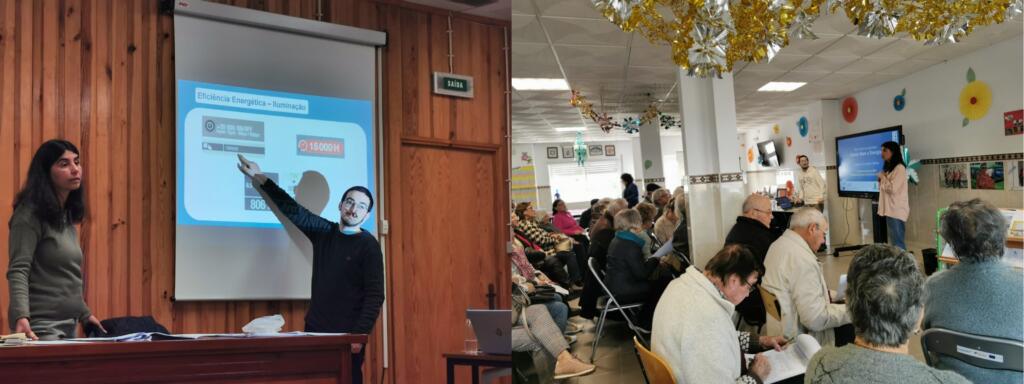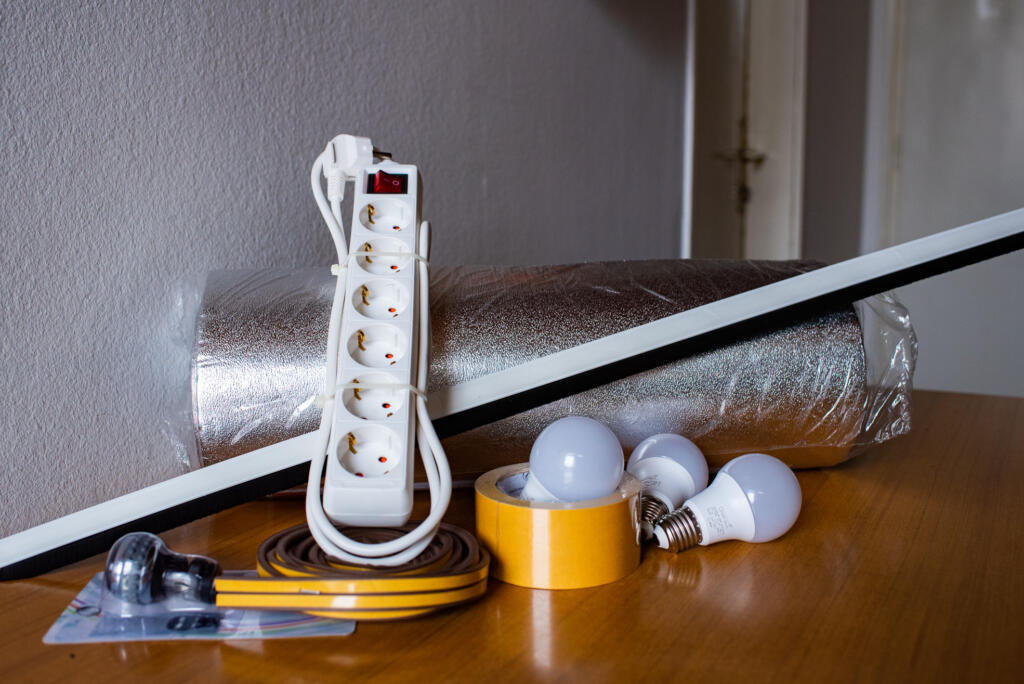Boosting energy literacy can empower people to enjoy greater comfort at home without higher energy bills. To date, more than 100 people have participated in workshops hosted by Coopernico and its partners; but none have taken up the offer for targeted help through a home visit.
The workshops – called Gastar Bem a Energia, or ‘Spend Energy Well’ – cover topics related to energy efficiency and help people better understand their energy bills. Coopernico attributes the high number of attendees to the decision to run the workshops in partnership with energy agencies or other groups with established networks in local areas. To encourage a casual, social atmosphere and to put everyone at ease, the workshop hosts supply food and drink.
During the workshop, Coopernico stresses that being ‘energy smart’ is not necessarily about reducing the total amount of energy spent at the household level: for those in energy poverty, this could be inappropriate. Rather, the focus is on using energy in the best way possible to ensure comfort at home without breaking the bank.

With the financing of local partners (Lisbon-based energy agency S.Energia and the University of Loures), Coopernico also gives each participant who asks an ‘Energy Box’ with items for improving energy efficiency. Filled with items such as a window isolating strip, door seal, power bars (extensions with switches), LED bulbs, and a power outlet with temporiser, the Boxes cost about €30 each. In return for funding, the sponsor gains visibility by having its logo placed in the Box and getting a chance to present during the workshop.
Adapting workshops to people’s needs
To date, workshop participants have predominantly been retired people enrolled in “universities of the third age”, or Academia Sénior in Portuguese. Coopernico quickly discovered a need to adapt its presentation style to this audience, including adopting a conversational tone and making more effort to ensure all information is clear.
To support the eventual evaluation with the CEES project, Coopernico also needs to conduct surveys to collect data on each participant’s energy use. Initially, this proved difficult as people became fatigued of answering a long list of questions. Coopernico switched from asking all questions at the beginning to interspersing them at relevant points in the presentation. This makes the workshop and survey feel more integrated. As some participants have vision issues that make reading difficult, Coopernico also changed surveys to have larger fonts and bold text on key takeaways. If necessary, workshop hosts sit next to participants who require more assistance and read the information to them.

Low interest in home visits an ongoing challenge
Despite having more than 100 participants, Coopernico has yet to convince even one person to take up the offer of a home visit for more targeted advice. In line with ethical practices, it is the partner entities that have the personal information of participations; however, this means Coopernico is unable to communicate directly after the sessions. The reasons for low interest are unclear: people may think it unnecessary or find the idea too intrusive. In the future, Coopernico will try scheduling home visits during workshops to try to boost uptake.
A practical approach to tackling energy poverty: lessons from other CEES partners
Energy literacy and empowerment are central to Coopernico’s objectives as a cooperative and, as such, are present in everything they do. Specifically targeting people in energy poverty, though, is new to them. Coopernico has been inspired by CEES partners with more experience in taking a more direct approach.

ZEZ carries out home visits in the city of Zagreb and the surrounding Zagreb County (Republic of Croatia). Whilst there, they also give clients Energy Savings Packages, which contain six LED bulbs, two six-metre lengths of window and door seals, one door whisk, one six-metre reflective foil for radiators, one extension cord with a switch, two water-saving aerators, and an energy saving brochure offering advice. Using this package, one Croatian household can save up to 1 300 kwh of thermal energy and up to 370 kwh of electricity (equivalent to HRK 1 600 or €213.50) annually.

ALIenergy also visit their clients’ homes in remote, rural communities of west Scotland (United Kingdom). Alongside home energy advice and crisis funding, they donate two types of kits to customers: an energy saving kit, similar to those given out by ZEZ and Coopernico, and Cosy Kits, which deliver immediate relief and help people stay warm. The Cosy Kits include a hot water bottle, blanket, thermal socks, night light torch, cold alarm and advice leaflets. Recipients have reported how much they appreciated the help.